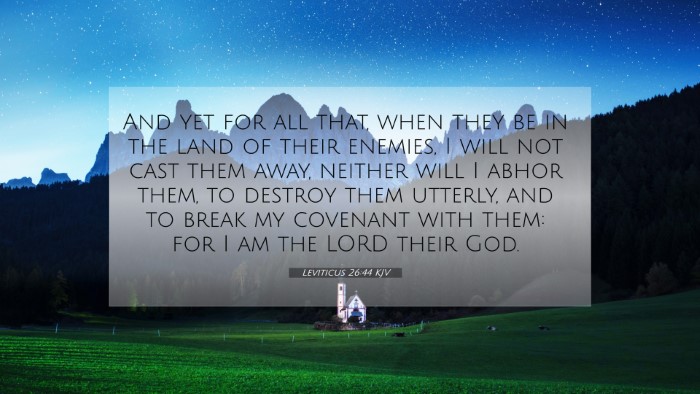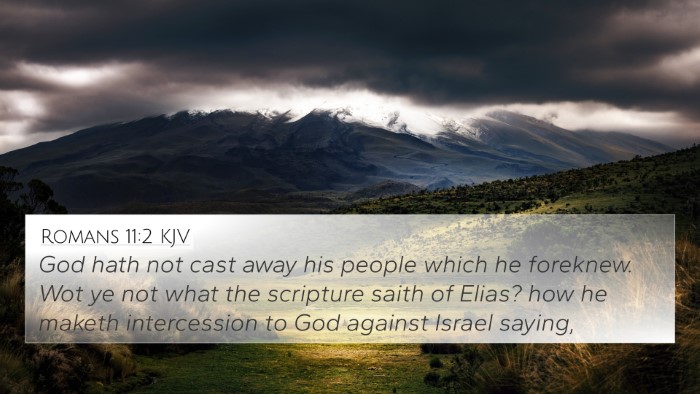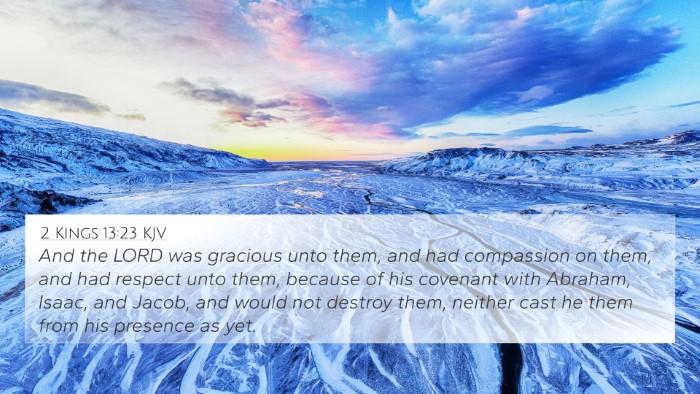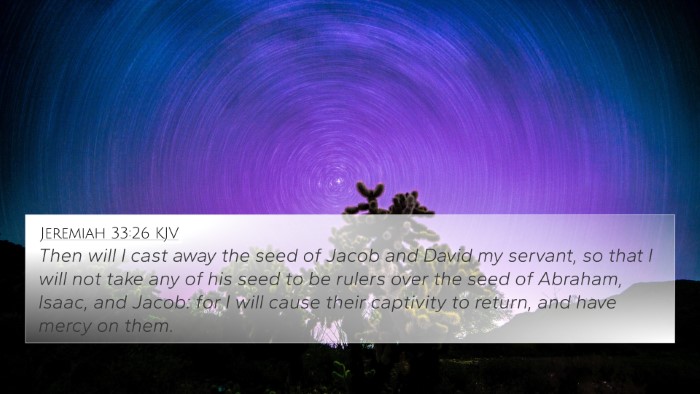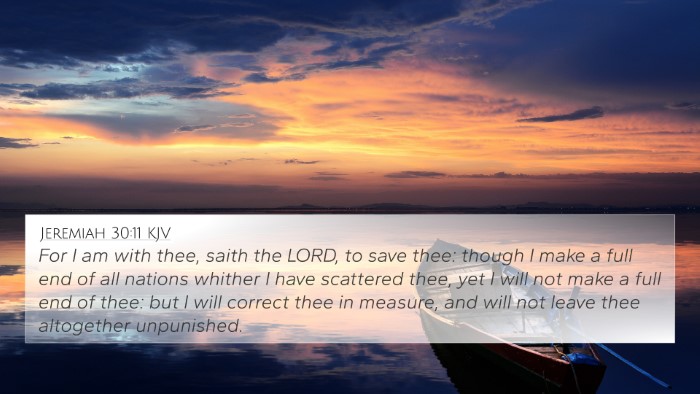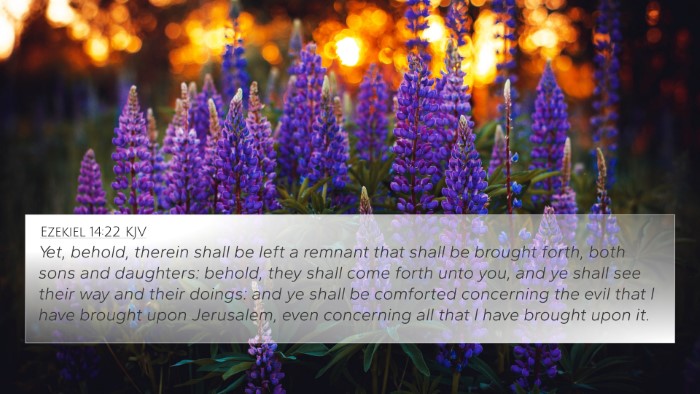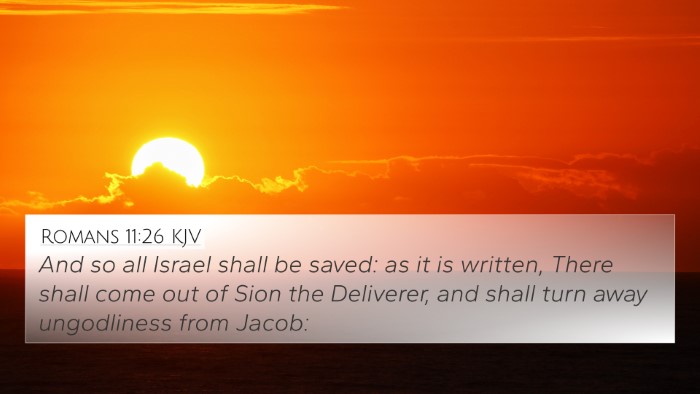Understanding Leviticus 26:44
Leviticus 26:44 is a significant verse that speaks of God's enduring relationship with His people, even amidst their failures and consequences of disobedience. This verse reads:
"Yet for all that, when they be in the land of their enemies, I will not cast them away, neither will I abhor them, to destroy them utterly, and to break my covenant with them: for I am the LORD their God."
Meaning and Interpretation
The insights from public domain commentaries shed light on the depth of this verse, highlighting key themes such as divine fidelity, mercy, and covenantal promises.
Key Insights from Commentaries
-
Matthew Henry: Henry emphasizes God's unyielding commitment to His people, even when they are in exile due to their disobedience. He notes that God's character as the Lord implies He will not forsake His people, but will rather uphold His promises, showcasing His mercy and faithfulness.
-
Albert Barnes: Barnes draws attention to the juxtaposition of God’s aversion to sin and His compassion for sinners. He highlights that even when Israel faces the repercussions of their actions, God's inclination is to restore rather than to abandon, affirming His covenant with them.
-
Adam Clarke: Clarke focuses on the aspect of God’s presence with His people, even in difficulty. He points out that this verse reassures believers of God’s ability to maintain His relationship with them, regardless of external conditions or internal failings.
Cross-References and Thematic Connections
Leviticus 26:44 can be cross-referenced with several other Bible verses that elaborate on similar themes of God’s promise and fidelity:
- Deuteronomy 31:6: God's assurance of strength and presence amidst trials.
- Isaiah 54:10: A declaration of God's everlasting kindness and faithfulness.
- Jeremiah 31:37: The steadfastness of God's covenant with Israel.
- Romans 11:1-2: God's continuing commitment to His chosen people.
- 2 Timothy 2:13: The reliability of God's promises despite human unfaithfulness.
- Psalms 94:14: Assurance that God will not forsake His people.
- Hebrews 13:5: God's promise to never leave nor forsake His people.
Thematic Bible Verse Connections
The overarching theme reflected in this verse emphasizes God's covenant faithfulness. It highlights how the relationship between God and humanity is rooted not only in divine justice but also in mercy. Here are the thematic connections between Bible verses:
-
Covenant Relationship: The linkage of Leviticus 26:44 with Genesis 9:13 (God's covenant with Noah) and Exodus 19:5 (Israel as a treasured possession) underscores the deep commitment God has to His covenant people throughout history.
-
Divine Mercy: Cross-referencing with Psalm 103:10, where God does not treat us as our sins deserve, aids in understanding the grace that permeates this verse.
-
Hope in Restoration: Echoed in Ezekiel 36:26-28, which speaks of God restoring His people and giving them new hearts, the spirit of renewal coincides perfectly with the promise in Leviticus 26:44.
Tools for Bible Cross-Referencing
To make the most of the connections between Bible verses, consider utilizing these helpful tools:
- Bible Concordance: A helpful resource for identifying key themes and locating related verses.
- Bible Cross-Reference Guide: Assist in navigating the cross-referencing of scriptures efficiently.
- Cross-Referencing Bible Study Methods: Explore various methodologies for studying the relationships between scripture, enhancing understanding.
Conclusion
Leviticus 26:44 offers a profound insight into the nature of God's relationship with His people, underlining His unwavering promise amidst trials and tribulations. By examining this verse alongside others, one can gain a richer understanding of Biblical themes and the continuity of God's message throughout scripture. The practice of cross-referencing enhances our study of the Bible, revealing deeper connections and encouraging a more robust faith.


